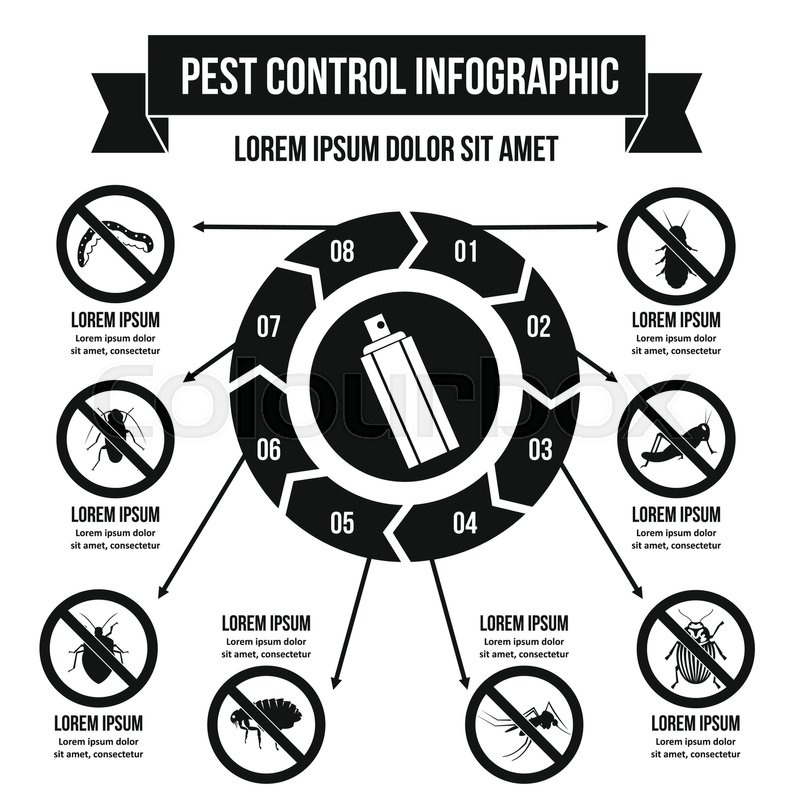Pest-Proofing Your Garden: Tips For Keeping Exterior Insects Away
Pest-Proofing Your Garden: Tips For Keeping Exterior Insects Away
Blog Article
Writer-Frandsen Qvist
Envision your garden as a shelter, an area of harmony and elegance. Nevertheless, the existence of outdoor parasites can quickly disrupt this ideal image. What happens if there were straightforward yet effective methods to maintain these unwelcome visitors at bay and protect your yard sanctuary? By complying with a few practical suggestions and executing all-natural techniques, you can create an unified exterior room where your plants can flourish undisturbed.
Natural Bug Deterrents
To keep pests far from your garden naturally, plant fragrant natural herbs like mint and lavender. These aromatic plants not just add appeal to your yard but additionally function as efficient parasite deterrents. Bugs like mosquitoes, flies, and even some garden-damaging bugs are driven away by the solid aromas discharged by these natural herbs. Simply placing https://www.wlf.louisiana.gov/page/nuisance-wildlife-control-and-removal around your garden can assist produce a natural obstacle against undesirable pests.
In addition to mint and lavender, take into consideration planting various other natural herbs like rosemary, basil, and lemongrass to further improve your garden's pest-proofing capacities. These herbs not only serve as all-natural repellents but additionally have the added advantage of being useful in cooking or crafting self-made remedies.
Strategic Plant Positioning
Take into consideration the format of your yard and the kinds of plants you have to strategically position them for maximum pest-proofing effectiveness.
Beginning by grouping best flea and tick treatment with comparable resistance to pests together. By doing this, you can create a natural barrier that deters parasites from spreading throughout your garden.
In addition, placing pest-repelling plants like marigolds, lavender, or mint near more vulnerable plants can aid secure them. Tall plants, such as sunflowers or corn, can act as a guard for much shorter plants versus pests like bunnies or ground-dwelling pests.
Keep in mind to leave adequate room in between plants to boost air blood circulation and minimize the threat of conditions that pests could bring.
Furthermore, consider planting strong-smelling herbs like rosemary or basil near susceptible plants to puzzle bugs' detects and make it harder for them to situate their targets.
Reliable Insect Control Methods
For combating yard bugs properly, executing a multi-faceted parasite control method is necessary. Start by motivating natural killers like birds, ladybugs, and hoping mantises to aid maintain insect populations in check. Introducing plants that draw in these valuable bugs can help in bug control. Furthermore, exercising good garden health by getting rid of debris and weeds where insects might conceal can make your garden less welcoming to undesirable site visitors.
Think about utilizing physical obstacles such as row cover materials or netting to secure at risk plants from pests like caterpillars and birds. Using natural chemicals like neem oil or insecticidal soap can additionally be effective versus particular pests while being much less hazardous to beneficial insects and the atmosphere. It's vital to turn your plants each season to prevent the buildup of pest populations that target particular plants.
On a regular basis evaluate your plants for indications of bug damages so you can do something about it immediately. By incorporating these techniques and staying watchful, you can efficiently regulate garden parasites and take pleasure in a growing, pest-free yard.
Verdict
So, there you have it - with the right approaches, you can maintain pesky outside bugs far from your yard and aid your plants thrive.
Did you recognize that growing mint has been revealed to push back insects and various other insects, reducing the demand for damaging chemicals by approximately 60%?
By integrating natural deterrents and smart growing techniques, you can develop a stunning and pest-resistant garden sanctuary for you to appreciate.
